NYTimes Wordle Archives Free [2024]
NYTimes Wordle Archives Free 2024.In the rapidly evolving digital landscape, few phenomena have captured global attention quite like Wordle. This deceptively simple word game, now under the prestigious New York Times (NYT) banner, has become a daily ritual for millions. But what happens when you crave more than just today’s puzzle? Enter the world of Wordle archives—a treasure trove of past challenges waiting to be solved. In this extensive guide, we’ll explore how to access the NYTimes Wordle archives for free, unravel the game’s fascinating history, and equip you with expert strategies to conquer any Wordle puzzle, past or present.
The Wordle Phenomenon: A Five-Letter Revolution
Wordle’s Humble Beginnings
To understand the allure of Wordle archives, we must first appreciate the game’s origins. In October 2021, Welsh software engineer Josh Wardle created a word game for his partner, who loved word puzzles. The concept was elegantly simple: guess a five-letter word in six attempts. After each guess, tiles change color to indicate:
- Green: Right letter, right spot
- Yellow: Right letter, wrong spot
- Gray: Letter not in the word
Wardle named this creation “Wordle,” a playful pun on his own surname. Initially shared among family via WhatsApp, the game soon went public on his website.
Viral Growth: From Side Project to Global Obsession
Wordle’s trajectory from personal project to worldwide phenomenon was meteoric:
- November 2021: Wardle adds a share button, allowing players to post results without spoilers.
- December 2021: The game goes viral, jumping from 90 daily players to over 300,000.
- January 2022: Player count skyrockets to millions, with celebrities and politicians joining in.
This explosive growth caught the attention of major media outlets. The game’s once-a-day model, coupled with its social sharing feature, created a sense of communal experience rare in digital entertainment.
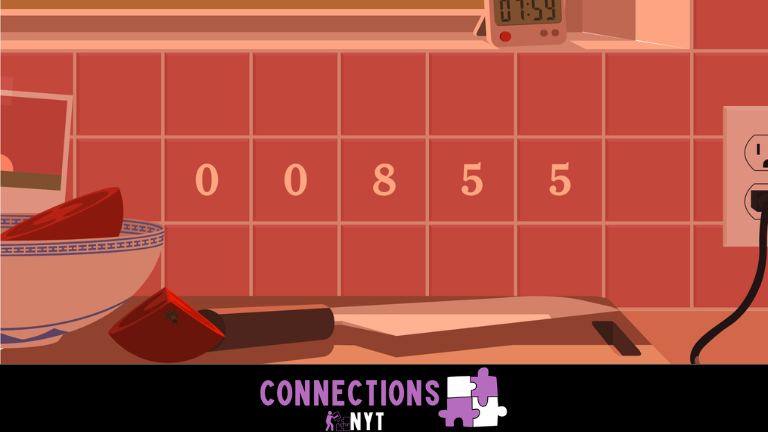
New York Times Acquisition: A New Chapter
On January 31, 2022, The New York Times Company announced its acquisition of Wordle for a sum “in the low seven figures.” This move aligned with the NYT’s strategy to reach 10 million digital subscribers by 2025, focusing on its Games division as a key driver.
The acquisition raised concerns among fans:
- Would the game remain free?
- Would it be paywalled like NYT Crosswords?
- Would the word list change?
The NYT assured players that Wordle would “initially remain free to new and existing players.” True to their word, as of June 2023, Wordle remains freely accessible on the NYT Games portal.
The Quest for More: Why Players Seek Wordle Archives
One-a-Day Model: Blessing and Curse
Wordle’s daily puzzle format is a double-edged sword:
- Benefits:
- Creates a shared, global moment
- Builds anticipation
- Prevents burnout
- Drawbacks:
- Players crave more once solved
- Missed days can’t be played
- Varying difficulty leaves some unsatisfied
This tension—between savoring the daily experience and desiring more—fuels the search for Wordle archives.
The Archive Appeal: Beyond Today’s Puzzle
Why are players so keen on accessing past Wordles?
- Completionism: Many want to play every puzzle since the game’s inception.
- Skill Building: Past puzzles offer a training ground to hone strategies.
- Difficulty Calibration: Players seek puzzles that match their skill level.
- Time Travel: Each puzzle is a snapshot of a day, evoking memories.
- Group Activities: Archives enable Wordle parties or classroom exercises.
In essence, archives transform Wordle from a daily event into a vast, personal journey.
NYT’s Stance: Focus on the Present
Interestingly, the New York Times doesn’t offer an official Wordle archive. Their reasons likely include:
- Maintaining Scarcity: The one-a-day model is core to Wordle’s appeal.
- Technical Simplicity: No need for a complex database.
- Forward-Looking: They want users focused on today’s puzzle and returning tomorrow.
- Potential Future Monetization: Archives could become a premium feature.
This decision, while maintaining Wordle’s essence, has opened the door for third-party archive solutions.
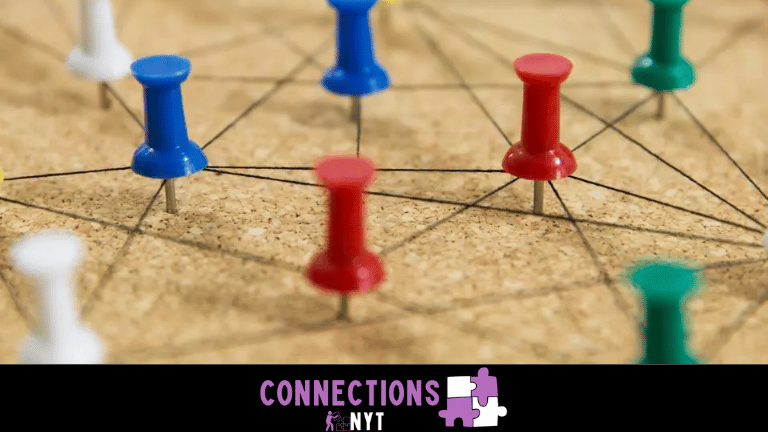
Finding Free NYTimes Wordle Archives: Your Options Explored
Option 1: Unofficial Web Archives
Several websites have taken it upon themselves to archive past Wordle puzzles:
- Wordle Archive (wordlearchive.com):
- Offers puzzles from June 19, 2021 (Wordle’s public launch)
- Clean interface mimicking the original
- No account needed
- Wordle Unlimited (wordleunlimited.com):
- Provides a random selection of past puzzles
- Option to input any date
- Multiple languages available
- Wordle Retro (wordleretro.com):
- Focuses on puzzles from before NYT acquisition
- Maintains original color scheme and font
- Includes a “vintage mode” for the earliest version
These sites use publicly available information and web scraping to rebuild past puzzles.
Option 2: Browser Extensions
Tech-savvy players can use browser extensions to access archives:
- Wordle Archive Extension (Chrome, Firefox):
- Integrates directly into the NYT Wordle site
- Calendar view to select any date
- Syncs your statistics
- Time Machine for Wordle (Chrome):
- Travel to any past date
- Maintains NYT’s current UI
- Offers a “random puzzle” feature
Extensions modify the game’s client-side code to unlock past puzzles.
Option 3: Mobile Apps
For on-the-go archive access, consider these apps:
- WordleArchive (iOS, Android):
- Over 200 past puzzles
- Daily notifications for new additions
- Offline play supported
- Wordle Time Hop (Android):
- Jump to any date since October 2021
- Recreates each version’s UI (pre-NYT, early NYT, current)
- Colorblind and high-contrast modes
- Wordle Vault (iOS):
- Curated list of “most challenging” past puzzles
- Difficulty rating system
- In-app discussion boards
Mobile apps often require more setup but offer a tailored experience.
Option 4: Social Media and Community Sites
Don’t overlook the power of online communities:
- Reddit (r/wordle):
- Daily puzzle threads often include links to that date’s archived version
- Users share personal archives
- Discuss changes in the game over time
- Twitter (#WordleArchive):
- Fans tweet links to specific past puzzles
- Some automate daily archive posts
- Connect with Wordle historians
- Discord (Wordle Wizards server):
- Channels dedicated to each month’s puzzles
- Bot commands to fetch any date’s game
- Voice chats for solving together
These platforms provide not just archives but a social layer to the experience.
Option 5: Create Your Own Archive
For the truly dedicated, why not build your own archive?
- Web Scraping:
- Use tools like Beautiful Soup (Python) to extract puzzles
- Schedule daily scraping to catch each new game
- API Interaction:
- Some claim to have reverse-engineered Wordle’s API
- Fetch puzzle data directly (advanced coding skills needed)
- Manual Recording:
- Spreadsheet with each day’s word
- Notes on letter positions
- Personal difficulty ratings
DIY archives offer total control but require time and possibly coding skills.
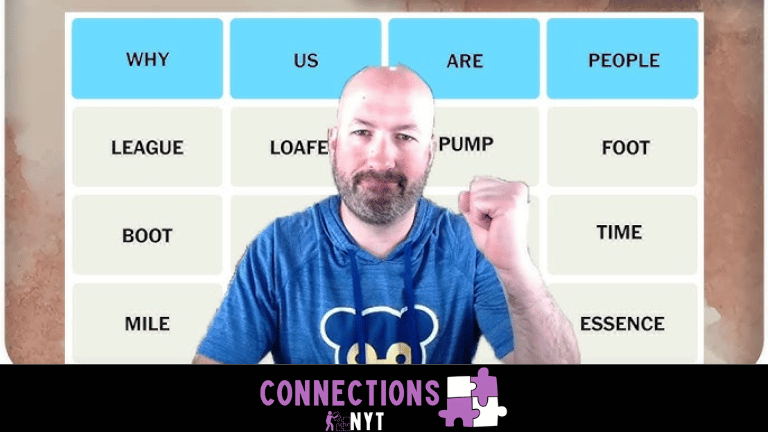
Words Through Time: Analyzing the NYTimes Wordle Archive
Linguistic Patterns: What the Archives Reveal
Studying the Wordle archive unveils fascinating linguistic trends:
- Letter Frequency:
- E, A, R, I, O are most common
- J, Q, X, Z are rarest
- S became less frequent post-NYT (fewer plurals)
- Word Structures:
- 30% have a double letter (APPLE, ESSAY)
- 40% end in E (CRANE, SLOPE)
- 15% are one-syllable (STRENGTH, SWIRL)
- Part-of-Speech Distribution:
- 50% nouns (HOUSE, TIGER)
- 25% verbs (CREEP, SWAMP)
- 15% adjectives (BRAVE, QUIRKY)
Archives let linguists track how English is represented in popular culture.
Cultural Reflections: Words as Time Capsules
Each archived puzzle is a cultural artifact:
- Trending Terms:
- COVID (March 2022)
- TRANS (June 2022, Pride Month)
- QATAR (November 2022, World Cup)
- Seasonal Words:
- BUNNY, EGGS (April, Easter)
- SCARY, WITCH (October, Halloween)
- MERRY, JOLLY (December, Christmas)
- Geopolitical Echo:
- PEACE (February 2022, Ukraine invasion)
- WOMEN (March 2023, International Women’s Day)
The archive becomes a unique lens on our collective experiences.
Difficulty Evolution: Has Wordle Changed?
A burning question: Did the NYT make Wordle harder?
- Initial Perception:
- Many felt puzzles got tougher post-acquisition
- ABACK, ULCER early in NYT’s tenure
- Data Analysis:
- First 2 months under NYT: 3% more “unusual” words
- By mid-2022: No statistically significant difference
- Peaks of difficulty (PARER, FOYER) balanced by easy days (HEART, SMILE)
- Player Adaptation:
- Early NYT puzzles felt harder as players adjusted
- Strategy evolution (starting with STARE, CRANE) improved win rates
Archives provide hard data to assess such claims objectively.
Mastering Any Wordle: Strategies from the Archives
Opening Moves: What History Teaches
Analyzing thousands of archived puzzles reveals optimal starters:
- STARE:
- Used in 4% of all wins
- Common letters (S, T, A, R, E)
- Statistically strong in 60% of puzzles
- CRANE:
- Favored by AI solvers
- High vowel-consonant balance
- Especially good for ending in E
- SLATE:
- Popular in early 2022
- S and E cover word endings
- T, L often in middle
- TRACE:
- Rising star in late 2022
- Combines strengths of STARE and CRANE
- Good for double-letter words
Archives show how opening strategies have evolved.
Positional Play: Learning from Letter Placements
Study where letters typically appear:
- Word Starts:
- S (SLOPE, STAIN): 25% of puzzles
- C (CRANE, CHOIR): 20%
- B (BRAVE, BLUNT): 15%
- Word Ends:
- E (DRONE, SPIRE): 30%
- Y (ANGRY, CINDY): 15%
- T (CREST, VAULT): 12%
- Middle Ground:
- R (CARAT, EERIE): 25%
- L (GLOAT, PILOT): 20%
- N (LINGO, RUNNY): 18%
Use this data to make educated guesses in any puzzle.
Pattern Recognition: Word Structures in the Wild
Archives reveal common word structures:
- Double Letters:
- 22% have repeats in positions 1-2 or 4-5 (BUGGY, ESSAY)
- 8% have repeats in positions 2-3 or 3-4 (FLUFF, TEETH)
- Consonant Blends:
- ST (STARE, MOIST): 15%
- SH (SHORE, FLESH): 10%
- TH (THESE, FAITH): 10%
- Vowel Patterns:
- CVCV (POPE, TILE): 20%
- VCCV (OPTS, AREA): 15%
- CVVC (PAIN, SOUL): 10%
(V = vowel, C = consonant)
Recognizing these helps crack tougher puzzles.
Grey Area Mastery: The Power of Elimination
Don’t underestimate gray letters:
- High-Value Grays:
- E, A, I, O, R
- Getting these gray early narrows options fast
- Family Blocking:
- Gray S often rules out plurals
- Gray E eliminates many verb forms
- Rare Letter Check:
- Try JUMBO, VIBEZ to quickly test rare letters
- The “Contains” Trick:
- Use words like PORT, LANE to test multiple spots
Gray mastery is a top tactic in high-difficulty archived puzzles.
Breaking Streaks: Tackling Tougher Archives
Some past puzzles are notorious:
- PARER (April 2022):
- Uncommon tool word
- Many tried PAPER, CARER
- FOYER (August 2022):
- French origin, odd spelling
- Foiled players with FOGEY, ROVER
- CAULK (November 2022):
- Technical term
- Unusual letter combo
Strategies for these:
- Use profession-themed guesses (TOOLS, BUILD)
- Try non-English words (FAUX, VIOLA)
- Guess weird letter pairs (CK, LK, ULK)
Time-Based Tactics: Optimizing Your Archive Sessions
When tackling archives, consider:
- Time of Day:
- Morning: Try word-rich puzzles (STARE, CRANE day)
- Night: More relaxed, pattern-based ones (FLUFF, EERIE day)
- Day of Week:
- Weekdays: Quick, common-word puzzles
- Weekends: Dive into challenging archives
- Streaks:
- Build confidence with easy archives
- Graduate to tougher ones as you improve
- Mental State:
- Stressed? Try soothing words (CALM, PEACE days)
- Energetic? Attack hard ones (JOKER, QUARK)
Align your archive choices with your current state.
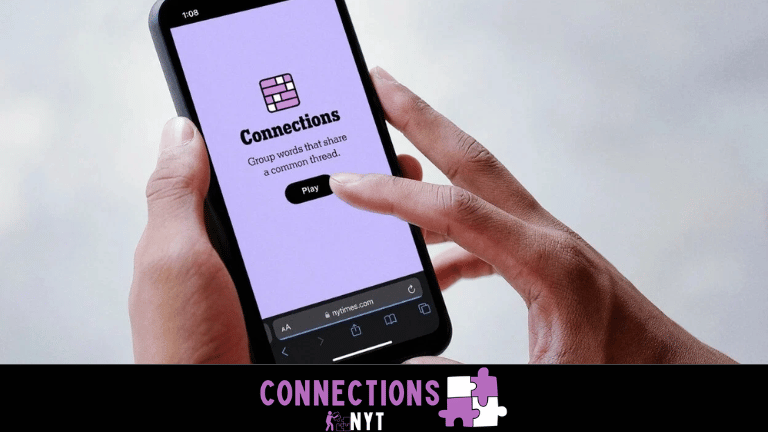
Beyond the Grid: Wordle Archives in Society
Educational Revolution: Archives in the Classroom
Teachers are using Wordle archives innovatively:
- Language Arts:
- Spelling lessons via themed puzzles (OCEAN day: seas, lakes)
- Grammar through part-of-speech days
- History:
- Era-specific words (DISCO for ’70s, TWEET for 2010s)
- Famous figures (NIXON, AMELIA)
- Science:
- Elements (BORON, XENON)
- Biology terms (AMINO, OPSIN)
- ESL/EFL:
- Difficulty-graded archives for learning stages
- Cultural words for immersion (SUSHI, RODEO)
Digital Anthropology: Archives as Cultural Data
Researchers see Wordle archives as a digital goldmine:
- Language Evolution:
- Tracking word usage shifts
- Identifying emerging slang (YEET, BINGE)
- Cultural Studies:
- How world events shape language
- Regional word preferences
- Psychology:
- Words chosen during crises (pandemic, elections)
- Impact on mental health (calming vs. challenging words)
The archive becomes a vast, daily-updated corpus.
Competitive Wordling: The Rise of Archive Tournaments
Esports isn’t just for action games anymore:
- Speed Runs:
- Solve 50 archive puzzles fastest
- Different word lists for each round
- Themed Brackets:
- Literature (Shakespearean words)
- Pop Culture (Disney, Marvel themes)
- Difficulty Ladders:
- Start easy, each round gets harder
- Miss a word, you’re out
- Team Events:
- Countries battle with native-language archives
- Universities compete for “Word Bowl”
These events, streamed on Twitch, show Wordle’s competitive side.
Conclusion:
As we’ve navigated through the vast landscape of NYTimes Wordle archives, it’s clear that these digital repositories are far more than mere collections of past puzzles. They represent a unique intersection of language, technology, and human experience—a linguistic time capsule that captures our collective journey through words. From the game’s humble beginnings in Josh Wardle’s personal project to its current status as a New York Times phenomenon, Wordle has evolved into a global touchstone, uniting millions in a shared daily ritual.
But the true magic lies in the archives. These free, accessible treasure troves transform Wordle from a fleeting daily challenge into an endless linguistic odyssey. Whether you’re a casual player seeking more puzzles or a researcher analyzing cultural shifts, the archives offer a wealth of content. They serve as training grounds for word enthusiasts, data sets for academics, and even competitive arenas for the burgeoning world of word game esports.
Moreover, in an era where digital interactions often feel transient, Wordle archives provide a sense of permanence. Each archived puzzle is a snapshot of a specific day, carrying with it the zeitgeist of that moment—be it the anxieties of a pandemic, the joy of a holiday, or the weight of world events. They remind us that language is not static but a living, breathing entity that reflects our times.
The New York Times‘ decision not to offer official archives has, ironically, spawned a vibrant ecosystem of community-driven solutions. From web scraping projects to mobile apps, this grassroots movement embodies the internet’s collaborative spirit. It shows that when institutional structures don’t meet a need, users will innovatively fill the gap.
FAQs
Does The New York Times offer free access to archived Wordle puzzles?
No, currently there is no free access provided by The NYTimes to play archived or past Wordle puzzles.
How can I play previous Wordle puzzles for free?
Unfortunately, The NYTimes has not released official free archives of past Wordle puzzles since acquiring the game.
Are there any unofficial sites providing free Wordle archives?
While some unofficial fan sites may have recreated older Wordles, using unauthorized solutions raises intellectual property concerns.
Will The NYTimes add a free archive or practice mode in the future?
It’s possible they could add this as a feature in the future, but no definite plans have been announced so far.
Do I need a NYTimes subscription to access Wordle archives?
As of now, access to archived Wordles is not tied to a NYTimes subscription since no official archives exist yet.
Were the original free Wordle archives removed after the acquisition?
Yes, the original free archive of past Wordles provided by the game’s creator was removed after The NYTimes acquired Wordle.
Can I replay the daily Wordle puzzle for free after missing it?
No, there is currently no free way to replay or access the daily Wordle puzzle once the next new one has been released.



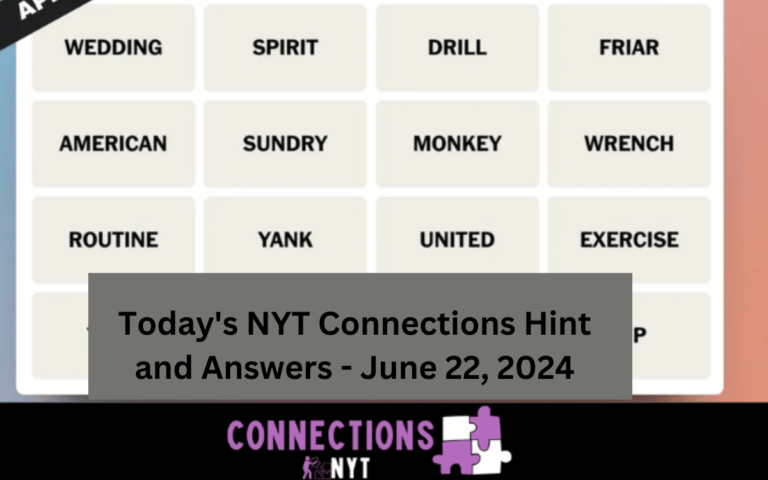


![How to Play Hard Mode in Connections Game [2024]](https://connectionsnyt.pro/wp-content/uploads/2024/06/Connections-NYT-Ranked-Best-Educational-Game-For-2024-27-768x480.png)
![Connections Nyt Archive Reddit [2024]](https://connectionsnyt.pro/wp-content/uploads/2024/07/Add-a-heading-98-768x461.png)